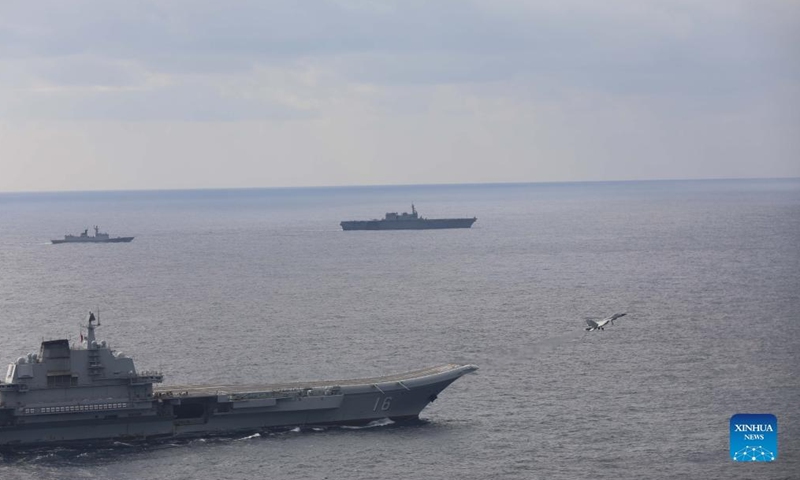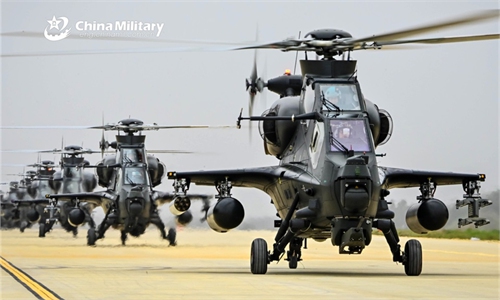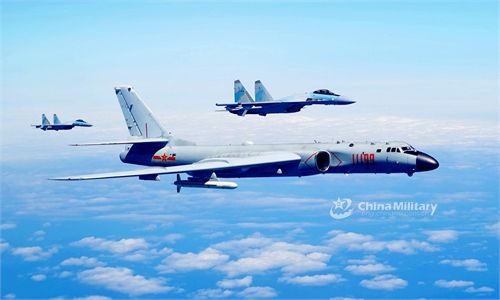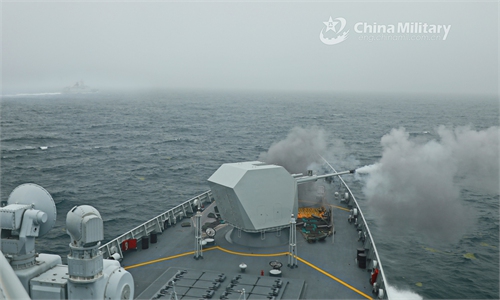China slams Japan for close-range tracking of aircraft carrier, says it doesn’t want ‘dedicated photographers’

Undated file photo shows the Chinese navy's Liaoning aircraft-carrier formation conducting open-sea combat training.Photo:Xinhua
China on Thursday slammed Japan for making dangerous close-range tracking and disruptions to an aircraft carrier of the Chinese People's Liberation Army (PLA) Navy during the latter's recent, legitimate drills in the West Pacific, with analysts saying that the Japanese move reflected the country's ulterior motive of offensive military expansion under the excuse of the "China threat" theory.
It is better that the aircraft carrier Liaoning does not have "dedicated photographers" in the form of Japanese vessels and aircraft, said Senior Colonel Wu Qian, a spokesperson at China's Ministry of National Defense, at a regular press conference on Thursday.
Wu's remarks came after Japanese Defense Minister Nobuo Kishi reportedly claimed that the PLA Navy's Liaoning aircraft carrier group recently operated near Japan's southwestern islands as well as the island of Taiwan.
Kishi said that the Liaoning carrier had hosted hundreds of aircraft sorties, with Japan's Defense Ministry saying that Japan dispatched the helicopter carrier Izumo to track and monitor the Chinese vessels, and sent warplanes to deal with Chinese carrier-based aircraft activities.
In response, Wu said that the training activities of the PLA Navy's Liaoning aircraft carrier group are completely reasonable and legitimate, and Japan's hype has its own scheme.
By hyping Chinese military activities, Japan likely wanted to show off its presence and create excuses for its own pursuit of military expansion, Wu said. "We firmly oppose this," he said.
Wu also pointed out that Japan's close-range tracking and disruptions were very dangerous that could have easily led to misunderstandings, misjudgments and accidents.
China demands that Japan stop all meaningless disruptions and safeguard bilateral ties as well as regional peace and stability with actions, as what Japan did is not beneficial to mutual trust and caused serious threats to the safety of both sides' vessels, aircraft and personnel.
Japan has been tracking and monitoring Chinese military activities for years, repeatedly calling them threats and provocations despite admitting that the Chinese vessels and aircraft did not enter Japanese territory. The US stations a nuclear-powered aircraft carrier in Japan and frequently sends other vessels for training near Japan. Why doesn't Japan protest the US? observers asked.
Japan has some ulterior motives, Zhang Junshe, a senior research fellow at the Naval Research Academy of the PLA, told the Global Times on Thursday.
By hyping the "China threat" theory, Japan is finding excuses to develop offensive weapons and military capabilities, Zhang said, noting that Japan exposed this intention by again mentioning it will enhance so-called counterattack capabilities and increase its defense budget during the recent meeting between top US and Japanese leaders.
Japan is also trying to shift the public attention away from its own provocative military activities like reconnaissance, patrols and drills in the East China Sea and South China Sea, Zhang said.




